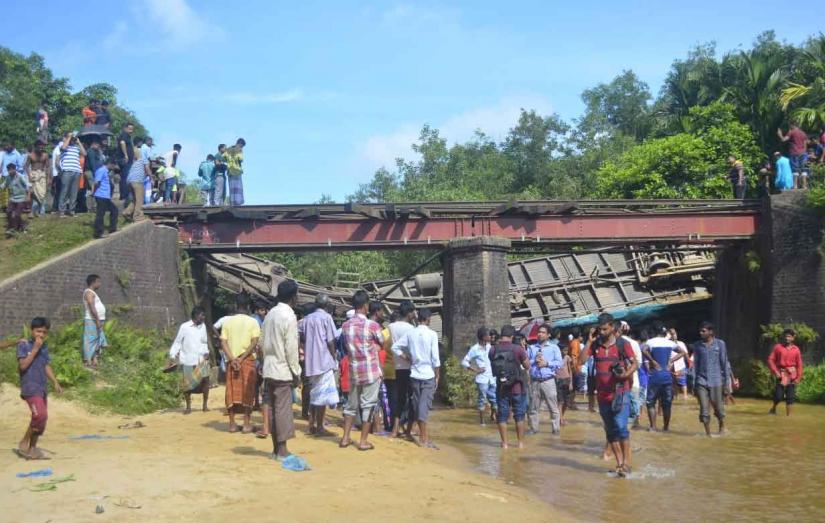 At least 209 people were killed in more than 200 railway accidents across the country in the first half of the year, says a new study.
At least 209 people were killed in more than 200 railway accidents across the country in the first half of the year, says a new study.
The deaths include 47 women, and 21 children, said the Shipping and Communication Reporters’ Forum (SCRF), which published the outcome of its study on Wednesday (Jul 10).
In a statement sent to the media, the SCRF said it came with the figures by counting incidents reported in 22 national dailies, 10 regional newspapers and eight online news outlets.
The study identified five reasons for accidents causing the causalities — crossing rail lines while talking over a cell-phone, rashness among pedestrians, railway staff’s apparent negligence in duty, rundown railway tracks and bridges, and careless driving by locomotive operators.
With hand-held devices becoming more and more common around the world, this is being recognized as a threat on roads, and railway tracks in Bangladesh.
An international news agency reported on Jun 27 that at least 535 people were killed since 2010 after being hit by trains while wearing headphones on the tracks in and around Dhaka.
According to the report, the mostly unfenced railway lines of Bangladesh see nearly 1,000 fatal accidents or suicides annually.
Highlighting the rising death figures involving people wearing headphones on the tracks, police in Bangladesh said "headphone walkers" have become a new menace as people walk on the tracks listening to music or talking on mobile phones using earphones.
"Walking on railway tracks, and putting on headphones is banned in the country. Still, a lot of people ignore the ban, and are killed by trains," Dhaka rail police chief Yeasin Faroque Mozumder was quoted as saying in the report.
The Bangladesh Railways (BR) is one of the popular people and goods mover in the country with a network spanning 2,800-kilometres, and ferrying tens of thousands of passengers every day, making it inevitable for the economic, and social well being of this country.
But it has to contend with a dubious safety record, which has not been helped by a recent spate of major accidents.
In spite of repeated attempts to scale up safety through institutional, and budgetary support, the number of casualties in rail accidents has seen an increase over the years.
 National
National
41388 hour(s) 40 minute(s) ago ;
Morning 07:34 ; Monday ; Jul 07, 2025
Over 200 killed in railway accidents in 2019: Study
Send
Bangla Tribune Desk
Published : 23:59, Jul 10, 2019 | Updated : 09:26, Jul 11, 2019
Published : 23:59, Jul 10, 2019 | Updated : 09:26, Jul 11, 2019
0 ...0 ...
/hb/
Topics: Top Stories
- KOICA donates medical supplies to BSMMU
- 5 more flights to take back British nationals to London
- Covid19: Rajarbagh, Mohammadpur worst affected
- Momen joins UN solidarity song over COVID-19 combat
- Covid-19: OIC to hold special meeting
- WFP begins food distribution in Cox’s Bazar
- WFP begins food distribution in Cox’s Bazar
- 290 return home to Australia
- Third charter flight for US citizens to return home
- Dhaka proposes to postpone D8 Summit
Unauthorized use of news, image, information, etc published by Bangla Tribune is punishable by copyright law. Appropriate legal steps will be taken by the management against any person or body that infringes those laws.
Bangla Tribune is one of the most revered online newspapers in Bangladesh, due to its reputation of neutral coverage and incisive analysis.
F R Tower, 8/C Panthapath, Shukrabad, Dhaka-1207 | Phone: 58151324; 58151326, Fax: 58151329 | Mob: 01730794527, 01730794528


